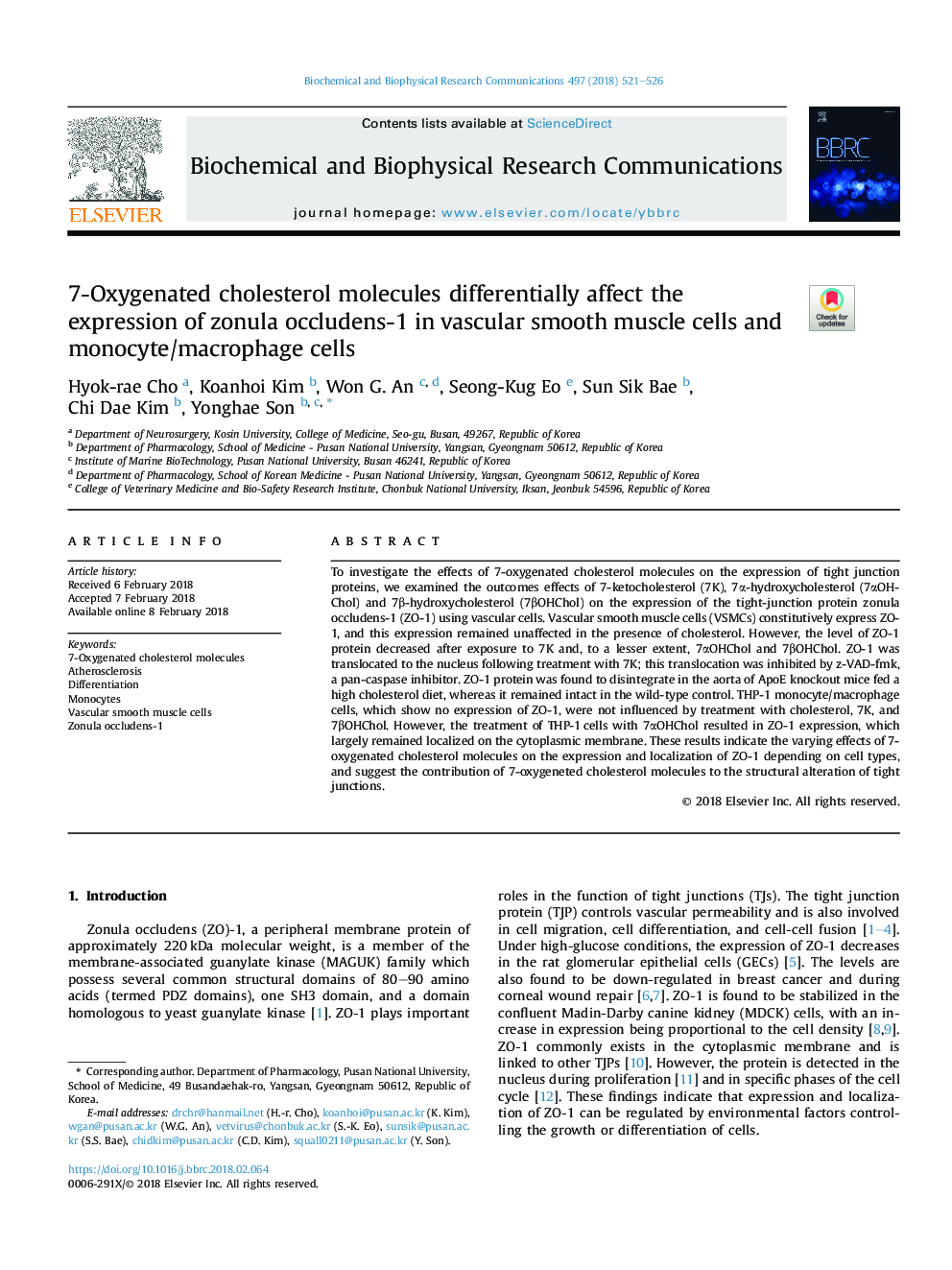| Article ID | Journal | Published Year | Pages | File Type |
|---|---|---|---|---|
| 8293942 | Biochemical and Biophysical Research Communications | 2018 | 6 Pages |
Abstract
To investigate the effects of 7-oxygenated cholesterol molecules on the expression of tight junction proteins, we examined the outcomes effects of 7-ketocholesterol (7K), 7α-hydroxycholesterol (7αOHChol) and 7β-hydroxycholesterol (7βOHChol) on the expression of the tight-junction protein zonula occludens-1 (ZO-1) using vascular cells. Vascular smooth muscle cells (VSMCs) constitutively express ZO-1, and this expression remained unaffected in the presence of cholesterol. However, the level of ZO-1 protein decreased after exposure to 7K and, to a lesser extent, 7αOHChol and 7βOHChol. ZO-1 was translocated to the nucleus following treatment with 7K; this translocation was inhibited by z-VAD-fmk, a pan-caspase inhibitor. ZO-1 protein was found to disintegrate in the aorta of ApoE knockout mice fed a high cholesterol diet, whereas it remained intact in the wild-type control. THP-1 monocyte/macrophage cells, which show no expression of ZO-1, were not influenced by treatment with cholesterol, 7K, and 7βOHChol. However, the treatment of THP-1â¯cells with 7αOHChol resulted in ZO-1 expression, which largely remained localized on the cytoplasmic membrane. These results indicate the varying effects of 7-oxygenated cholesterol molecules on the expression and localization of ZO-1 depending on cell types, and suggest the contribution of 7-oxygeneted cholesterol molecules to the structural alteration of tight junctions.
Related Topics
Life Sciences
Biochemistry, Genetics and Molecular Biology
Biochemistry
Authors
Hyok-rae Cho, Koanhoi Kim, Won G. An, Seong-Kug Eo, Sun Sik Bae, Chi Dae Kim, Yonghae Son,
